Hello Sup readers and writers!
Before we begin, remember everyone, the Supernatural Underground "Never Have I Ever" giveaway is still on. Pop into the comments and be in the draw!
This month, I'm blogging about sidekicks! I want to explore the qualities of a 'good' sidekick/wing woman/man, what traits they have, their roles in the storytelling and how to write them. Re-blogged from the 11th House.What Sidekicks Are Good For
Back story: A well written, three dimensional sidekick can help with back story, allowing the reader to see and hear about things that came before page one without wading through heavy exposition. We see this in Star Wars with the sidekick Chewbacca, where his adventures in the past with Han Solo help shape our understanding of the man. Also in the sidekicks C-3PO and R2-D2. We learn much about the world through their cometary.
World Building: The sidekick can represent a culture or social group as Gimli and Legolas do in Lord of the Rings. Gollum, a 'minor' character, but with a major goal, provides a talking point for the long and complex history of the ring. What life was like in the past, the roots of the hobbits as a people. He is kind of an 'anti-skidekick' to the anti-hero Frodo.
Contrast: The sidekick can have different values, ethics, goals and motivations, making for a contrast to the main protagonist. Damon Salvatore in The Vampire Diaries, for example, hasn't much of a moral compass. At all. His buddy Alaric Saltzman, however, does, and watching that friendship grow is a measure of the main character's arc and emotional evolution.
Humor and wit: The protagonist has to be pretty serious at times, playing it 'straight' as they work out how to fight the baddy, retrieve the lost treasure and save the day. The sidekick, however, is free to use wit and humor at times when the hero cannot. We see this in Buffy the Vampire Slayer with Xander (one of Buffy's many sidekicks). She may be in deep emotional angst and he can pop a one-liner that lifts the moment without throwing away her feelings.
Throw-aways: Similar to wit and humor, there are times when a scene is too intense, deep or meaningful and the sidekick can be just the one to lighten it all with a 'throw-away' line. Clive and Ravi do this on iZombie when Liv is too deep into the fact that she is dead, turned into a zombie and has to eat brains to survive. It can turn a scene around in a flash.
Freedom of Speech: The sidekick can say things the hero might be thinking, or wish they could say, but can't. In the Quantum Enchantment Series, Rosette has a sentient familiar, a temple cat who links with her telepathically. She might be having a conversation with a mentor or rival while her familiar does a running commentary on the whole thing, adding a new element to the scene.
Sympathy: The hero may also relate to the sidekick in ways they can't to others, allowing the reader to gain more compassion or understanding. This works especially well for main characters that are not fully sympathetic. Eric Northman's compassion for his progeny, Pam, is an example from True Blood, or Charlain Harrie's Southern Vampire Mysteries.
Writing the Sidekick
The first question to answer when developing a sidekick in the story is why are they there? They have to move the plot forward, be part of the part of the story. They also have to have their own GMC - goals, motivations and conflicts, internal and external. In a shorter work, these won't be explored to a great depth, but with novel length stories and series, there is room for these subplots to be woven.
In Lord of the Rings, Gollum is a shadow figure of Frodo, a kind of "anti-sidekick" representing the "anit-hero's" darker obsessions, passions, and also his instinctual side. Gollum knows natures ways, leads Sam and Frodo into dark places, with darker designs. Gollum's inner goals, in the end, aren't any different than Frodo's, but he still has his own history, motivations, conflicts, and outer challenges.
Further questions to ask when developing a sidekick:
- How do they move the plot forward?
- What do they contribute?
- Do they have heart or at least evoke an emotional response?
- Are their stakes genuine?
- Is their dialog strong and juicy?
- Are they redundant in any way?
How about you all? Who are some of your favorite sidekicks?
Writers, how to you approach these types of Characters?
Comments are always welcome!
 Kim Falconer is a Supernatural Underground author writing paranormal romance, urban fantasy, YA and epic science fantasy novels.
Kim Falconer is a Supernatural Underground author writing paranormal romance, urban fantasy, YA and epic science fantasy novels. You can find out more about Kim at the 11th House Blog, and on FaceBook and Twitter.
She posts here at the Supernatural Underground on the 16th of every month.
Her latest release is"Blood and Water" in Supernatural Underground: Vampires Gone Wild.



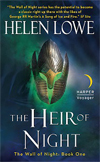
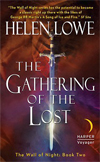
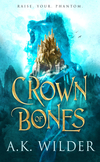

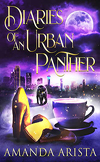



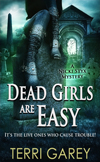

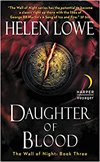
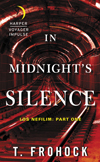
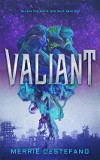


No comments:
Post a Comment